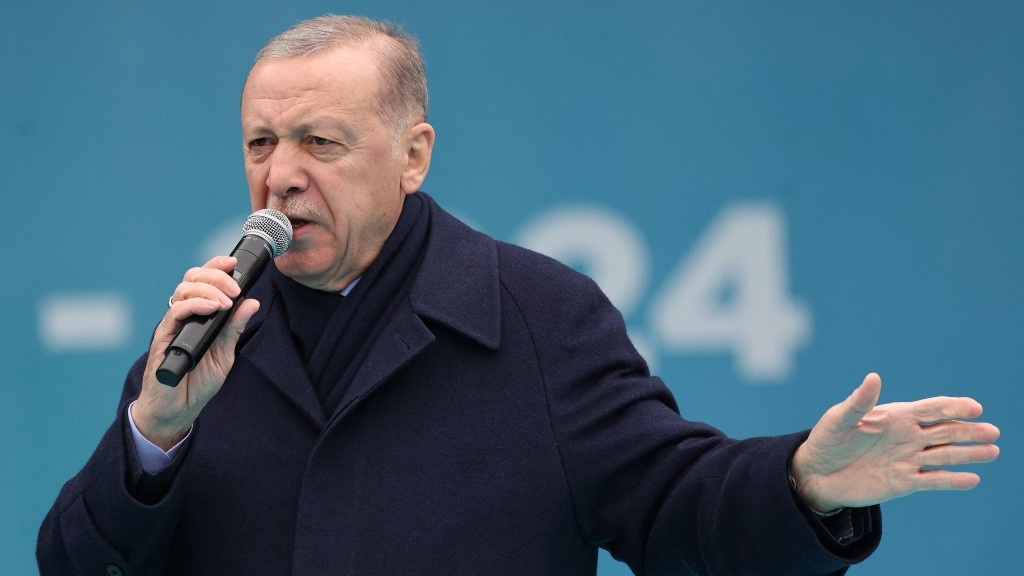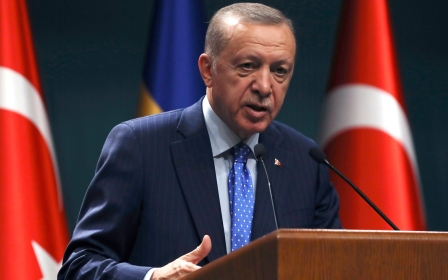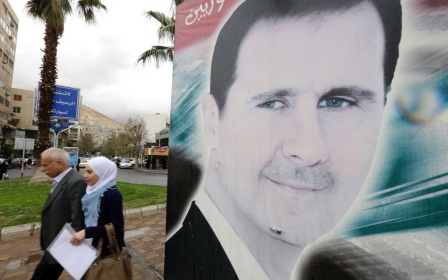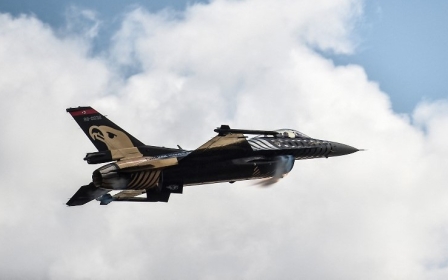Why Turkey is doing a U-turn on Syria

If, according to the definitive modern warfare adage, “war is nothing but the continuation of policy with other means”, then Turkey’s “war” in Syria is nothing short of a spectacular defeat.
From Turkish President Recep Tayyip Erdogan’s now-infamous quip that he would soon be praying in the historic Umayyad Mosque in Damascus in 2012, to his repeated vows to remove the “killer” Syrian President Bashar al-Assad, he is now desperately trying to reset ties.
Erdogan has indicated that he wants Assad to visit Turkey, noting that “our families were close” in the past and could be again. This is a U-turn of enormous proportions, even for Erdogan, given his other course changes with regards to Egypt, Saudi Arabia and the UAE.
Not to be outdone by Erdogan, the leader of the Turkish opposition CHP, Ozgur Ozel, has also requested to meet Assad - and it would be the ultimate humiliation for the Turkish president if the opposition were to steal the march in mending ties with Damascus.
Such is the dire state of Turkey’s Syria policy, that there is finally a consensus that Ankara must welcome and work with Assad.
New MEE newsletter: Jerusalem Dispatch
Sign up to get the latest insights and analysis on Israel-Palestine, alongside Turkey Unpacked and other MEE newsletters
We are now seeing a desperate Turkish race to Damascus, with leaders aiming to grab the first meeting and photo-op with Assad. Ozel has suggested that his presence is needed so that he can act as a mediator between Assad and Erdogan.
Despite this apparent olive branch, the CHP clearly has no doubts as to who is responsible for the Syria mess, from rising xenophobia in Turkey against Syrians, to the ill-judged backing of Syrian rebels in Idlib, to rampant inflation, refugees and a military quagmire in northern Syria.
Shifting policy
The Turkish opposition has been buoyed by its trouncing of the AKP in local elections earlier this year, and it now senses blood in the water when it comes to Turkey’s biggest foreign policy failure. The question arises: What was the point of Turkey fuelling the Syria war if Ankara now wants to move on and mend ties?
Two countries stand out in terms of those who orchestrated and led the war for regime change: Turkey and Qatar. Every other former foe has been turned into an ally, including Saudi Arabia and the UAE, with regular meetings and delegations between senior Syrian officials and Emirati and Saudi officials.
It has become clear that Turkey's regional rivals have all sided with Damascus
There are also questions in Damascus around what the purpose of all this was; what did Turkey get from supporting a war that ended up destabilising Turkey itself? There are reports that the very rebels Turkey supported are now burning the Turkish flag. Was has the war accomplished?
Some observers have noted that Assad would not be willing to meet Erdogan until, at the very least, Turkey sets out a roadmap to withdraw from Syria.
After 13 long years, it appears likely that we will see some sort of major shift in Turkish policy towards Syria. While defence and intelligence officials have met in recent years, a meeting between Assad and Erdogan or Ozel would be a game changer - and a final nail in the coffin of Ankara’s policy to oust Assad.
If Assad grants the opposition a first audience rather than Erdogan himself, this would mark an ironic twist, given Turkey’s hosting of the Syrian opposition. Assad has skilfully used Greece, Armenia, Egypt, Saudi Arabia and the UAE to his advantage to force Erdogan into a diplomatic U-turn, as it has become clear that Turkey’s regional rivals have all sided with Damascus.
The views expressed in this article belong to the author and do not necessarily reflect the editorial policy of Middle East Eye.
Middle East Eye delivers independent and unrivalled coverage and analysis of the Middle East, North Africa and beyond. To learn more about republishing this content and the associated fees, please fill out this form. More about MEE can be found here.





